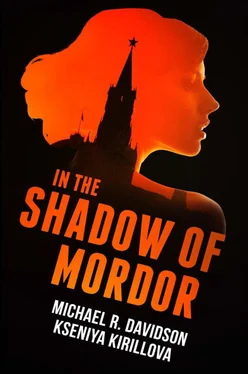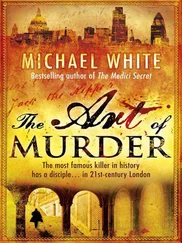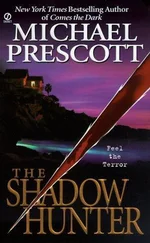The khaki uniform awoke an irrational awareness in Vlad, as though he were destined somehow to undo the despicable and senseless war in Ukraine. He could not dispel the thought that this young man who was forced to fight instead of leading a peaceful life, was now helping him — a citizen of the aggressor country.
Reading Vlad’s thoughts, Bogdan spoke first. “Don’t worry. I understand. Before the war, I was in the international human rights movement. I know a lot of guys from Russia, and they’re still my friends. I met Golovina in Moscow a few years ago. What a grand old lady! In Soviet times our Ukrainian dissidents worked with her — and that’s why she went to the Gulag. She’s pretty famous here. And if she asks us to help someone, no one will refuse. We’re well aware of how things are with you in Mordor. You see how this war began.”
“I’m incredibly sorry…” Vlad got a few words out before Bogdan interrupted him.
“Don’t apologize. No one in my family has died yet, thank God, but you — both parents. Marya Fedorovna let me know all about it, so it’s not for me to complain to you about anything. You’re lucky to get out of there. We know what it’s like, believe me, and if we can help, we’ll help.
“I hope you don’t mind, but my living conditions right now aren’t great. I have a two room apartment, but one room is now occupied by a family from Gorlovka. There’s a mother and baby, and her husband just arrived today. They left their home there and can’t return. You understand what ‘can’t return’ means? We haven’t found them a place yet, so I took them in. So we’ll be sharing one room. OK?”
“You ask me that? Listen, how can I help you? You know, so that I’m not a burden. Are you accepting people in the Battalion?”
“We really don’t need you right now in the Battalion,” Bogdan replied. “You rest up and get yourself together. You just got away from a bunch of murderers, and you want to get in a gunfight now? Where do you think you could fight without any training? We’ll find something for you, don’t worry. Marya Fedorovna said you’re a journalist. Do you know how few journalists there are in the cities along the front? All the press is in Kiev and afraid to come out here. Those who do come are amateurs. We might need to get some important information out. Today I asked armed forces headquarters, the VSU, and there’s something they want published as soon as it’s approved, and it’ll have to be written quickly. So you see, you came just in time.”
Bogdan smiled for the first time since they’d met.
“YEVROPEYSKIY KHARKOV” WEBSITE:
Russian Fighters Mine a City and Its Inhabitants
By: Vladislav Illarionov, Kharkov
The artist Mihailo Korzh recently escaped from occupied Gorlovka and was an eye witness to everything written here. Finding himself in an occupied city, here was no choice but to contact the so-called “MGB DNR” in order to obtain permission to leave. But the normal bureaucratic procedures led to an unexpected outcome: Mihailo witnessed the occupiers’ plans to destroy his home town. We met with the refugee in Kharkov, where he told us about how the city was occupied by Russians, Chechens and Serbs, about hunger and repression and even how these occupiers resolved to blow up the city and all its inhabitants.
“Field Commander Bezler, nicknamed ‘Bes,’ is a fanatic,” asserts Mihailo. “He thinks a bunch of ‘Bloody Banderists’ rule in Kiev. He actually believes what Russian propaganda says.”
However, according to the artist, problems in the currently occupied city began even before the appearance of the “Russian Beast.” At the end of February 2014 almost four thousand Russian citizens entered the city, practically simultaneously with the events in the Crimea.
“I don’t know if there were Spetsnaz among them, but I do know that there were criminals and Russian fascists — I saw their swastika tattoos. The occupied workers’ quarters and guest houses on the outskirts of town and were transported to every pro-Ukrainian gathering in the Donbas where they started fights. For example, they provoked a massacre in Donetsk. They were armed only with knives and rebar, but this was enough,” recalled Mihailo.
Then Girkin/Strelkov [6] Igor Vsevolodovich Girkin aka “Strelkov,” a Russian GRU colonel who played a prominent role in the invasion and occupation of Ukraine and the eventual formation of the so-called “Donbas Peoples Republic.” He was sanctioned by the EU for his actions.
appeared, and Bezler came with him. In order to control the recently arrived and local criminals, “Bes” made an agreement with the local establishment and even made an ally of the mayor. His next task was to bring the Chechen and Serb bandits under control.
“The Serbs were in charge of counter-intelligence against so-called ‘agents of Right Sector’ [7] Right Sector was a far-right, Ukrainian nationalist organization with fascist tendencies.
and random criminals. Most of the Serbs didn’t even speak Russian and for the most part were happy to arrest people on suspicion and turn them over for torture or execution. The prisoners were interrogated by officials of the Russian FSB. The Chechens handled routine patrols whenever it was necessary to frighten the locals, and they were very efficient at this,” says Mihailo. “The Serbs who knew a little Russian said openly that they were there to continue the war they’d fought in Croatia.
Things became chaotic in Gorlovka. Bezler and his men confiscated all the microbuses and four-wheel drive vehicles. Anyone who resisted got a bullet in the head, according to Mihailo. Many of the occupiers actually believed they were fighting NATO and the Americans.
The repression began shortly after Bezler organized his homegrown “siloviki.” They were quick to deal with any sign of dissent. The beginning of the repression was the death of Rybak, who was a member of the City Commission, but he is far from the only victim of the occupiers. Later came the firing squads for those who refused to turn over their property, demands for bribes from important businessmen, and the arrests of activists.
“As often as not, people simply disappeared, and then either their bodies were found or they were never heard from again. The official line was that these people had fled to Ukraine, but we knew this was not so. At least 600 people disappeared, even if they offered no resistance following the occupation,” Mihailo recalls.
It has become even more chaotic in Gorlovka over the past week. Like Girkin, Bezler left the Donbas and returned to Crimea, and at the beginning of September Russian troops entered the city and mercilessly exterminated the former “leadership.”
“There were battles between different elements that controlled sections of the city, including use of heavy weapons. According to Russian media, at least half of the destruction was due to these outlaw skirmishes,” says the Ukrainian refugee.
In the meantime, the economic situation in the newly declared “republic” worsened with each passing day. No one received a salary for a long time because all the businesses were closed. There was a catastrophic lack of food.
Mihailo confirms that during the recent advance of Ukrainian forces the city might have been re-taken. But this was prevented through filthy blackmail. One side began blowing up the railroads, bridges, and reservoirs while the other threatened not only to destroy the city’s infrastructure, but to devastate it completely along with the population.
“At this time Bezler officially notified the Ukrainian side that Gorlovka had been completely mined with explosives. I learned of this by accident, personally from an MGB employee. Later, other local officials confirmed this. Right now in Gorlovka, the water lines are mined, and toxic substances are emplaced that would be released into the water supply when the charges go off. The mined the sewers, the gas lines, and the power plant, and also two large industrial sites — the “Stirol” chemical combine where there is a great deal of dangerous substances and the factory that manufactured explosives for municipal works and for military purposes. There is a mountain of defective and unused explosives that would be detonated by an explosion. If that were to happen, nothing of Gorlovka would be left. It would be like another Chernobyl. Even the factory workers say so,” explains Mihailo.
Читать дальше












